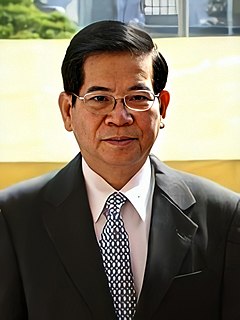A Quote by Carlos Beruff
Our trade negotiations should ensure that American workers are protected and that there are mechanisms in place to deal with other countries cheating.
Related Quotes
That means we get other countries to play by our rules. You add up all the countries that we have trade agreements with, we have a surplus with them. You add up the countries we do not have a trade agreement with, that`s where a massive trade deficit comes from. So our goal is to get free trade agreements, and that means we get other countries to play and live by our rules so we can level the playing field.
When American workers are losing their jobs to people in other countries, Washington cannot afford to ignore this disturbing trend any longer. While Democratic presidential candidates want to just blame U.S. corporations, the reality is that their strategy won't help protect American workers or save their jobs.



































